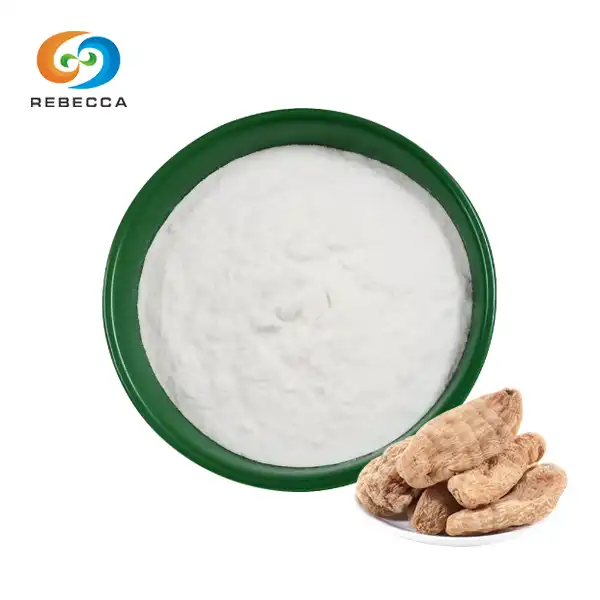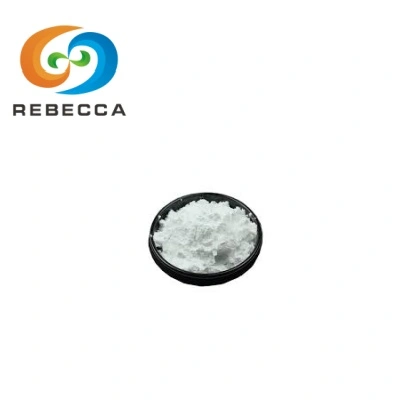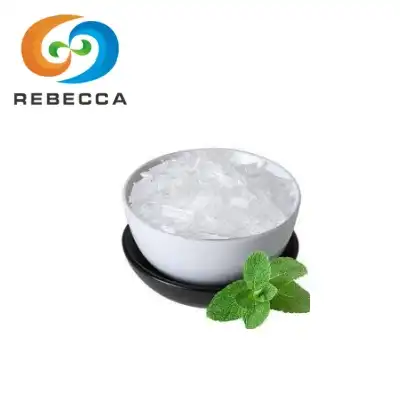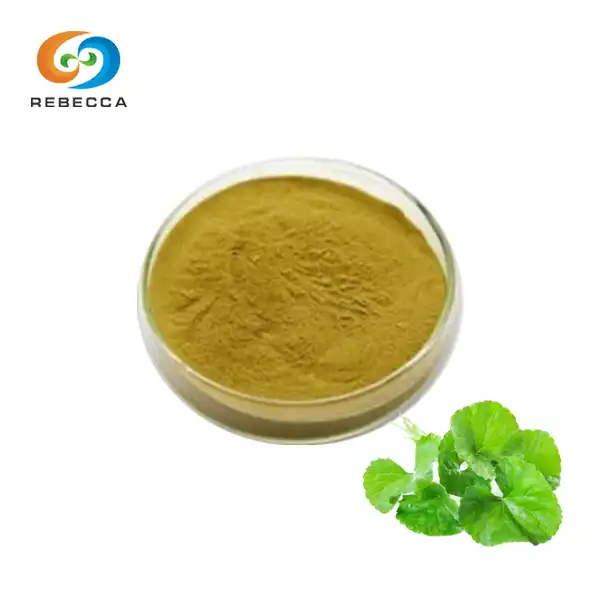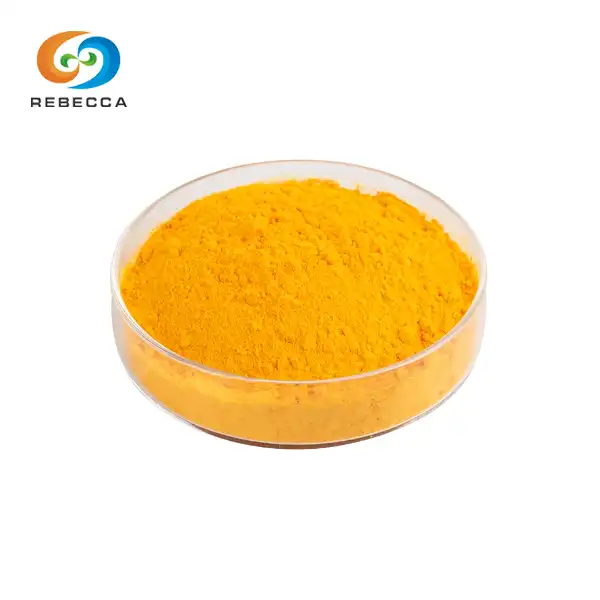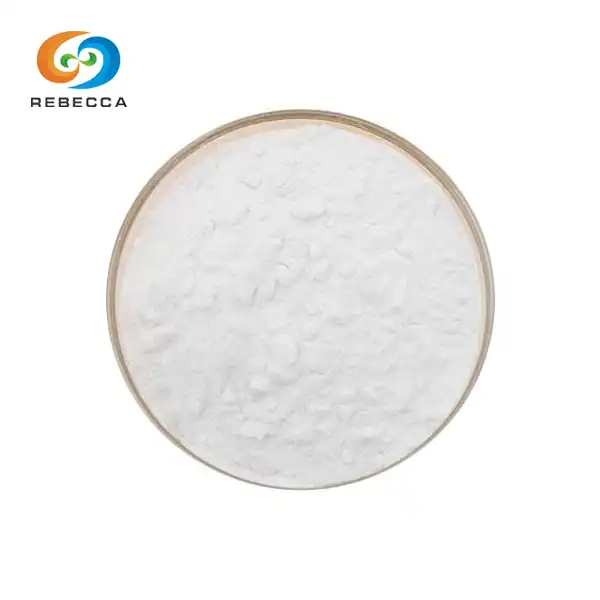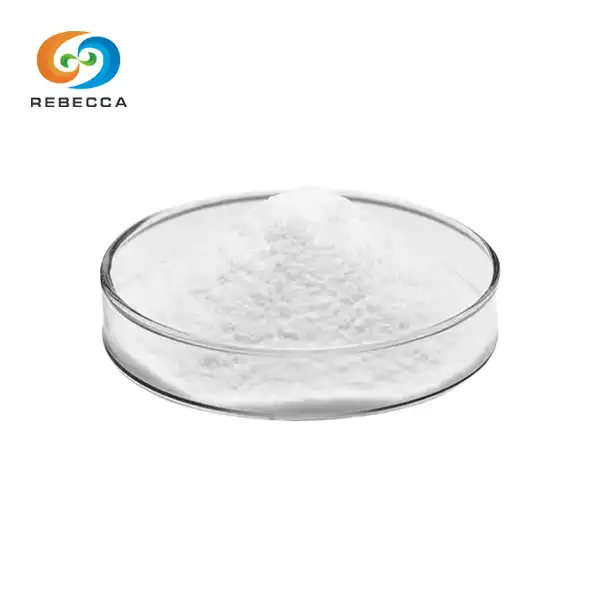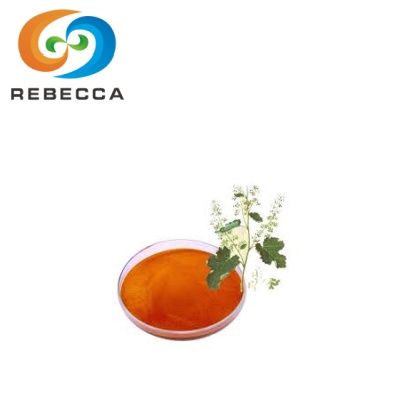What is the medicinal use of piperine extract?
Piperine extract, derived from black pepper, has gained significant attention in the medical field for its versatile medicinal uses. This potent compound offers a wide range of health benefits, including enhanced nutrient absorption, anti-inflammatory properties, and potential weight management support.
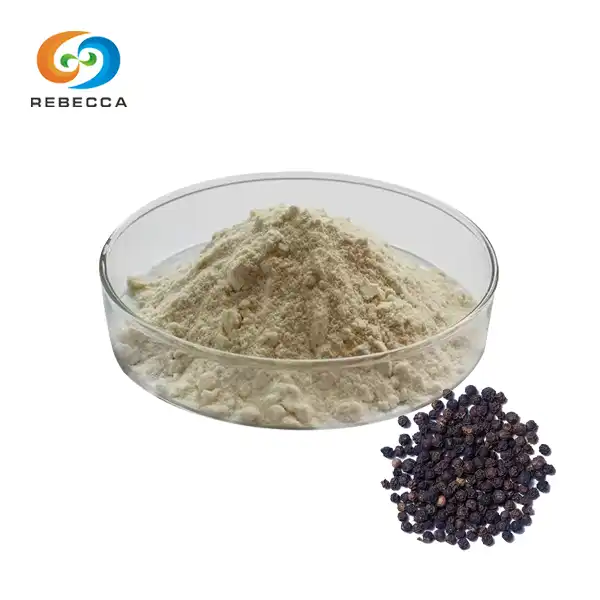
【English name】: Piperine
【Latin Name】: Piper nigrum L.
【CAS No.】: 94-62-2
【Molecular Formula】: C17H19NO3
【Active ingredients】: piperine
【Specification】: piperine 98%
【Use Part】 :seed
【Appearance】: Yellow brown Fine Powder to light yellow powder
【Mesh size】:80 Mesh
【Test Method】: HPLC
3 Surprising Benefits of Piperine You Never Knew
Piperine: The bioavailability booster for nutrients
One of the most remarkable properties of piperine extract is its ability to enhance the bioavailability of various nutrients and compounds. This black pepper derivative acts as a natural absorption enhancer, significantly improving the body's capacity to utilize essential vitamins, minerals, and other beneficial substances. Research has shown that piperine can increase the absorption of selenium, beta-carotene, curcumin, and several B vitamins by up to 2000%.
The mechanism behind this bioavailability boost lies in piperine's ability to inhibit certain enzymes responsible for metabolizing drugs and nutrients in the liver and intestines. By slowing down this metabolic process, piperine allows these substances to remain in the bloodstream longer, increasing their overall absorption and effectiveness. This property has garnered interest from pharmaceutical companies looking to enhance the efficacy of various medications.
Moreover, piperine's bioavailability-enhancing effects extend to herbal extracts and supplements. For instance, when combined with curcumin, the active compound in turmeric, piperine can increase its absorption by up to 2000%. This synergistic effect has led to the development of numerous supplement formulations that pair piperine with other beneficial compounds to maximize their health benefits.

Anti-inflammatory properties of piperine extract
Inflammation is a common underlying factor in many chronic diseases, and piperine extract has shown promising anti-inflammatory properties. Studies have demonstrated that piperine can inhibit the production of pro-inflammatory cytokines and reduce oxidative stress in the body. This anti-inflammatory action may contribute to its potential in managing conditions such as arthritis, asthma, and inflammatory bowel diseases.
The anti-inflammatory effects of piperine are attributed to its ability to modulate various cellular signaling pathways involved in the inflammatory response. By targeting these pathways, piperine can help reduce inflammation at a molecular level, potentially offering relief from chronic inflammatory conditions without the side effects associated with long-term use of conventional anti-inflammatory medications.
Furthermore, piperine's anti-inflammatory properties extend to its potential neuroprotective effects. Research suggests that piperine may help reduce inflammation in the brain, which could have implications for managing neurodegenerative diseases and improving cognitive function. This aspect of piperine's medicinal profile has sparked interest in its potential applications for brain health and cognitive enhancement.
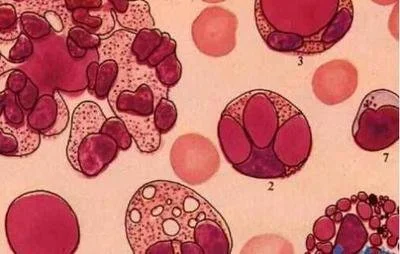
Piperine's role in weight management and metabolism
Piperine extract has emerged as a potential ally in weight management and metabolic health. Studies have shown that piperine can influence lipid metabolism and fat cell formation, potentially aiding in weight loss efforts. It may increase the metabolic rate and enhance thermogenesis, the process by which the body burns calories to produce heat.
The compound's effect on metabolism extends to its ability to improve insulin sensitivity and regulate blood sugar levels. By enhancing glucose tolerance, piperine may help prevent the development of metabolic disorders such as type 2 diabetes. Additionally, its thermogenic properties can boost energy expenditure, contributing to a more efficient metabolism and potentially supporting weight loss efforts.
Piperine's influence on fat metabolism is particularly noteworthy. Research indicates that it may inhibit the formation of new fat cells (adipogenesis) and promote the breakdown of existing fat cells (lipolysis). These effects, combined with its ability to enhance nutrient absorption, make piperine a compound of interest for those seeking natural approaches to weight management and metabolic health optimization.

From Ancient Remedy to Modern Medicine: Piperine's Journey
Traditional uses of piperine in Ayurvedic medicine
Piperine, the active compound in black pepper, has been a cornerstone of Ayurvedic medicine for thousands of years. In this ancient Indian healing system, black pepper, known as "Maricha," was revered for its potent medicinal properties. Ayurvedic practitioners used piperine-rich preparations to treat a wide range of ailments, from digestive issues to respiratory problems.
In Ayurvedic tradition, piperine was believed to enhance the "bioavailability" of other herbs and medicines, a concept now validated by modern science. It was often combined with other herbs to create synergistic formulations. For instance, the combination of black pepper and long pepper, known as "Trikatu," was used to stimulate digestion, improve metabolism, and treat respiratory conditions.
Ayurvedic texts also describe the use of piperine for its warming and stimulating effects on the body. It was believed to kindle the digestive fire, or "Agni," thereby improving overall health and vitality. This traditional wisdom aligns with contemporary understanding of piperine's thermogenic properties and its potential role in metabolic health.
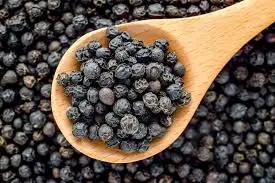
Scientific research validating piperine's health benefits
Modern scientific research has begun to unravel the molecular mechanisms behind piperine's diverse health benefits, validating many of its traditional uses. Numerous studies have focused on piperine's ability to enhance the bioavailability of various compounds, a property that has significant implications for drug delivery and nutrient absorption.
Research has also shed light on piperine's anti-inflammatory and antioxidant properties. These effects are attributed to its ability to modulate various cellular signaling pathways and inhibit the production of inflammatory mediators. Such findings suggest potential applications in managing chronic inflammatory conditions and oxidative stress-related disorders.
Additionally, scientific investigations have explored piperine's potential in cancer prevention and treatment. In vitro and animal studies have shown promising results, indicating that piperine may inhibit tumor growth and enhance the efficacy of certain chemotherapeutic agents. While more research is needed, these findings open up new avenues for piperine in oncology.
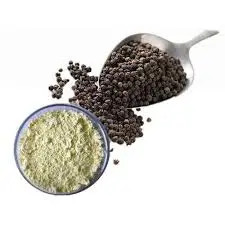
Piperine in modern pharmaceutical formulations
The pharmaceutical industry has taken note of piperine's unique properties, particularly its ability to enhance drug bioavailability. This has led to the development of novel drug formulations that incorporate piperine to improve the efficacy of various medications. For instance, piperine has been used to enhance the absorption of antibiotics, anticonvulsants, and even some anti-cancer drugs.
Piperine's role in pharmaceutical formulations extends beyond bioavailability enhancement. Its anti-inflammatory and antioxidant properties have made it a compound of interest in developing treatments for chronic diseases. Some researchers are exploring piperine-based formulations for managing conditions like arthritis, diabetes, and neurodegenerative disorders.
Moreover, the food and supplement industries have embraced piperine as a key ingredient in various health products. From bioavailability-enhancing supplements to weight management formulations, piperine has found its way into a wide array of consumer products, bridging the gap between traditional wisdom and modern nutritional science.
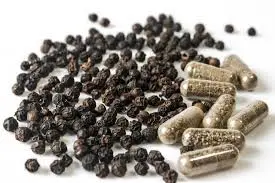
Is Piperine Extract the Key to Better Health?
Cognitive enhancement effects of piperine extract
Emerging research suggests that piperine extract may have neuroprotective and cognitive-enhancing properties. Studies have shown that piperine can cross the blood-brain barrier, potentially influencing brain function and cognition. Its antioxidant and anti-inflammatory effects in the central nervous system may contribute to its neuroprotective potential.
Animal studies have demonstrated that piperine supplementation can improve memory and cognitive performance. These effects are thought to be related to piperine's ability to modulate neurotransmitter levels and enhance neuroplasticity. Some research suggests that piperine may increase levels of serotonin and dopamine in the brain, potentially improving mood and cognitive function.
Moreover, piperine's potential in managing neurodegenerative diseases like Alzheimer's and Parkinson's is being explored. Its ability to reduce oxidative stress and inflammation in the brain, coupled with its cognitive-enhancing effects, make it a compound of interest in the field of neuroscience and cognitive health.

Piperine for digestive health and nutrient absorption
Piperine extract has long been recognized for its beneficial effects on digestive health. It stimulates the production of digestive enzymes, potentially improving the breakdown and absorption of nutrients from food. This effect may be particularly beneficial for individuals with compromised digestive function or nutrient absorption issues.
Studies have shown that piperine can increase the production of hydrochloric acid in the stomach, which is essential for proper digestion of proteins and absorption of vitamins and minerals. This increased acid production may also help prevent the overgrowth of harmful bacteria in the gut, contributing to overall digestive health.
Additionally, piperine's ability to enhance the absorption of various nutrients extends beyond its effects on digestive enzymes. It can increase the permeability of the intestinal lining, allowing for better absorption of certain vitamins, minerals, and other beneficial compounds. This property has led to the development of various nutritional supplements that combine piperine with other nutrients to maximize their bioavailability and effectiveness.

Where to Buy Piperine Extract?
For those interested in incorporating it into their health regimen or product formulations, Shaanxi Rebeccia offers high-quality, pharmaceutical-grade piperine extract. Our production base is equipped with internationally leading extraction, separation, and purification equipment, and operates in strict compliance with GMP and ISO standards. From raw material procurement to finished product delivery, every step undergoes rigorous quality control to ensure the safety and efficacy of our products. For inquiries about our natural extracts, please contact us at information@sxrebecca.com. Our team of experts is ready to assist you with product information, customized formulations, and regulatory support to meet your specific needs.
References
- Meghwal, M., & Goswami, T. K. (2013). Piper nigrum and piperine: an update. Phytotherapy Research, 27(8), 1121-1130.
- Shoba, G., et al. (1998). Influence of piperine on the pharmacokinetics of curcumin in animals and human volunteers. Planta Medica, 64(04), 353-356.
- Srinivasan, K. (2007). Black pepper and its pungent principle-piperine: a review of diverse physiological effects. Critical Reviews in Food Science and Nutrition, 47(8), 735-748.
- Butt, M. S., et al. (2013). Black pepper and health claims: a comprehensive treatise. Critical Reviews in Food Science and Nutrition, 53(9), 875-886.
- Samykutty, A., et al. (2013). Piperine, a bioactive component of pepper spice exerts therapeutic effects on androgen dependent and androgen independent prostate cancer cells. PloS One, 8(6), e65889.
